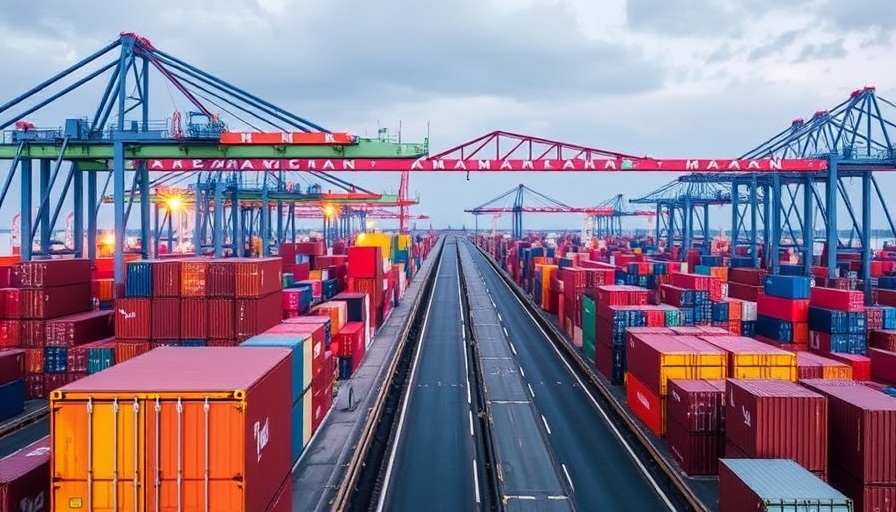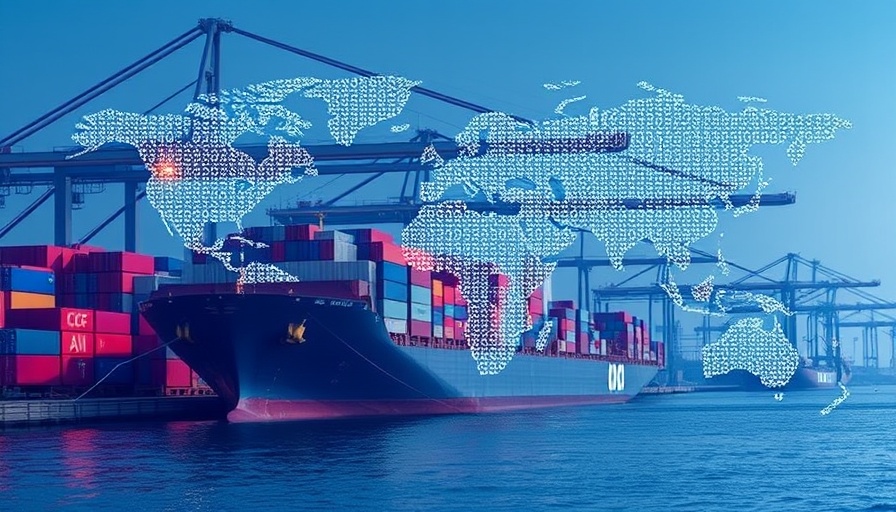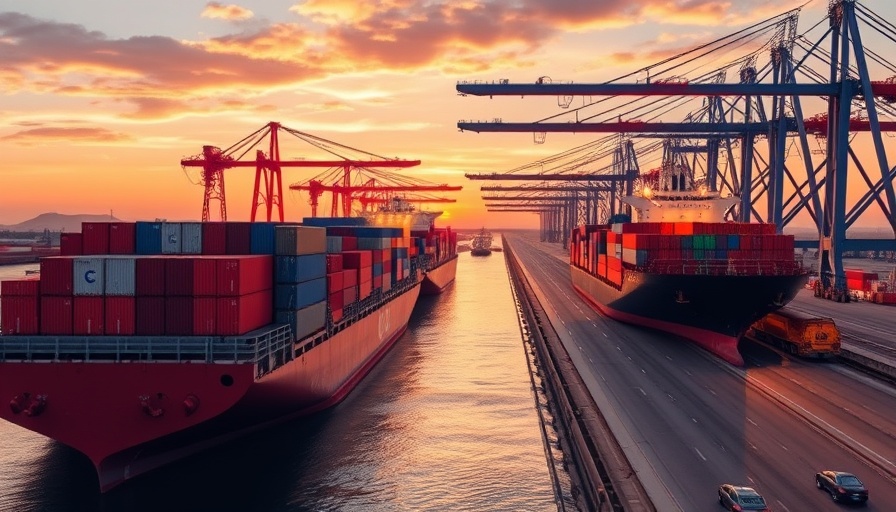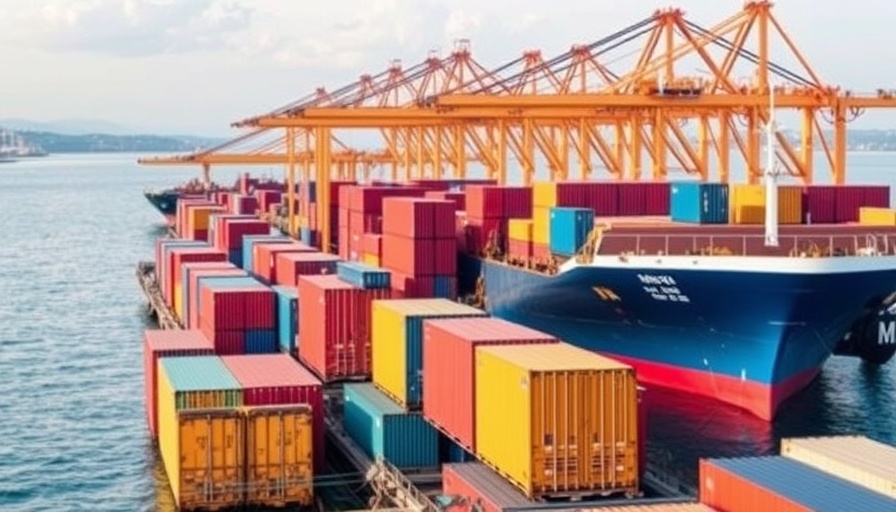
The Critical Need for Compliance in Global Trade
In today's volatile economic landscape, understanding trade regulations is crucial for executives navigating the complexities of international commerce. With shifting policies in key markets, staying compliant is more than a legal requirement; it’s a strategic necessity. Companies face increasing challenges, including unexpected tariff changes and evolving material costs, which can impact their bottom line and operational sustainability.
Insights on Tariffs and Their Implications
Tariffs are not just political tools; they are fundamental business considerations. Recent reports have shown that the economic effects of tariffs can significantly alter the operational dynamics for small and large businesses alike. Executives must analyze how tariff adjustments influence supplier relationships and product pricing. A proactive approach, encompassing real-time monitoring of tariff regulations, becomes imperative for safeguarding profit margins and staying competitive in the global marketplace.
Strategies for Managing Rising Costs
Rising material costs and supplier price increases are on the rise, driven by geopolitical tensions and supply chain disruptions. Companies must adopt innovative strategies for business cost reduction to maintain healthy profit margins. One effective approach is diversifying their supplier base to mitigate risks associated with sourcing from unstable regions. Additionally, evaluating local supply options, often termed near-shoring, can enhance reliability and decrease lead times.
Building Resilience Against Economic Fluctuations
As we approach 2025, manufacturing industry challenges are expected to intensify. Freezing recruitment in response to price volatility or minimizing operational costs can be short-sighted. Instead, building a resilient business strategy that factors in a comprehensive understanding of economic forecasts will prepare organizations for any potential downturns. Executives should prioritize strategies to protect against price volatility, enhancing their operational frameworks by integrating real-time data analytics for better forecasting of costs of goods sold.
The Importance of Supply Chain Management
Effective supply chain management is vital in today’s unpredictable market conditions. By improving supply chain reliability and seeking alternative sourcing strategies, businesses can alleviate the risks tied to geopolitical uncertainties. Engaging in diligent due diligence when importing materials, particularly from high-risk areas like China, can safeguard against compliance pitfalls and ensure smooth operational flows. Additionally, educating staff on the new compliance rules for small businesses can prevent costly penalties.
Future Predictions: Navigating Uncertain Waters
Looking ahead, executives must brace for a continually shifting regulatory environment. Economic landscape fluctuations, driven by fluctuating policies from key actors like the U.S. and China, will undoubtedly impact trade dynamics. Organizations must remain vigilant, continuously reevaluating their operational strategies to adapt to these changes efficiently. This vigilance not only prepares businesses for compliance but also instills a proactive culture of resilience.
In an era where the only constant is change, ensuring that your business adapts to emerging trade regulations and market demands is paramount. Take the initiative now to refine your strategies and ensure compliance— the future of your business hinges on it.
 Add Row
Add Row  Add
Add 


Write A Comment